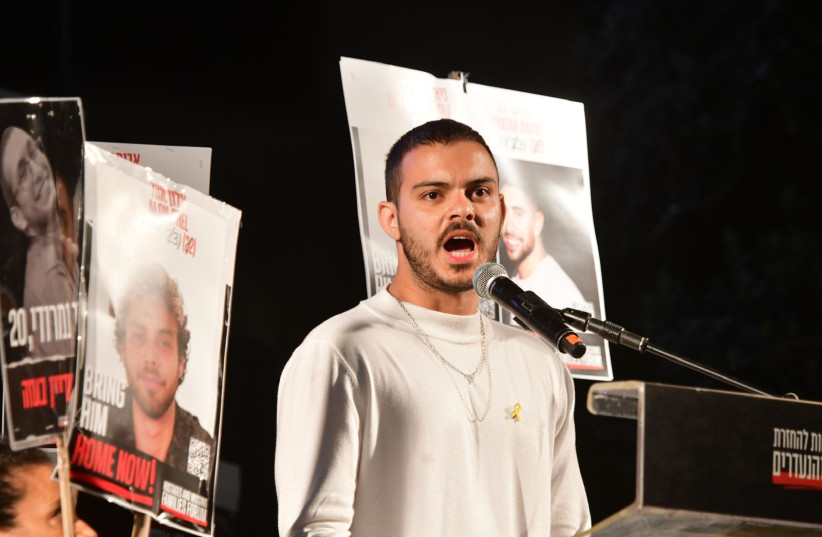Freed Hostage Omer Wenkert Breaks His Silence, What Happened During His 300 Days Underground?
A recently freed Israeli hostage shares a harrowing account of psychological and physical abuse during nearly 300 days of captivity in Gaza. His testimony sheds light on the brutal conditions endured by hostages and the lasting impact of their ordeal.


At the annual Israel Bar Association conference in Eilat, former hostage Omer Wenkert delivered a chilling account of the nearly 300 days he spent in captivity in Gaza, following his abduction by Hamas during the October 7, 2023, terror attack on southern Israel. His testimony offered a rare, deeply personal glimpse into the brutal treatment endured by hostages held underground, particularly as Israeli operations intensified in Rafah.
Wenkert described conditions that bordered on inhumane and were designed to break him physically and mentally. “There was intentional starvation,” he said, revealing that he went weeks at a time without food. "There were periods I didn’t even get a pita. Other weeks, I was given pita with mold, cheese, or beans, no vitamins or minerals, just empty carbs." Water, he said, was erratic and dependent on diplomatic developments or local availability. "I was in a tiny room that barely fit a mattress. For months, that hallway was my world."
As the IDF entered Rafah in May 2024, Wenkert said the abuse intensified. His captors allegedly put his life at risk for amusement. "One of them sprayed my face with pest control chemicals, forcing me to keep my eyes open, covering everything I touched in poison," he said. He added that the torment included being beaten with a metal rod, and that he was once limited to half a pita a day for up to three weeks.
Wenkert noted that he was allowed to see himself in a mirror only three times during his captivity. "The third time, I saw how thin I’d become. I kept telling Guy [Gilboa Dalal] and Eviatar [David], ‘I’m not that skinny,’ and they said, ‘Your bones are showing.’” Dalal and David are still believed to be held hostage in Gaza, along with 56 others.
The psychological abuse was as severe as the physical. “They told me ‘There is no time underground,’” he said, a tactic intended to disorient and isolate him. He showered roughly once every 50 days using a water bottle and changed clothes maybe four times throughout the entire 300-day ordeal.
His mother, Niva, joined him on stage and shared the horror of seeing her son after his release. “He was so pale, it reminded me of photos of Holocaust survivors,” she said, referencing the emaciated state of other released hostages like Or Levy and Ohad Ben Ami. “His body told the story of the abuse. The humiliation was written on his face, in his eyes.”
Following his release and arrival at the Re'im base, Wenkert recalled being shocked by his own reflection. “When I saw a full-body mirror, I removed my shirt to see just how thin I was. At home, I couldn’t even choose a shirt, I didn’t want my parents to see what had happened to me.”
Despite everything, he clung to any form of routine. Once joined by fellow hostages David and Gilboa-Dalal, Wenkert said emotional support improved, but the already cramped space became even smaller. “There was nowhere to walk, so I paced as much as I could to keep my mind going,” he said.
Wenkert’s testimony adds to a growing body of reports highlighting the cruelty faced by hostages taken by Hamas, a group designated as a terrorist organization by Israel, the United States, the European Union, and others. As of this week, 600 days have passed since the October 7 attack, and 600 days remain for many families desperate to see their loved ones again.
Wenkert’s courage in speaking out sheds light on the dark reality of captivity and reinforces the urgency of efforts to bring all remaining hostages home.